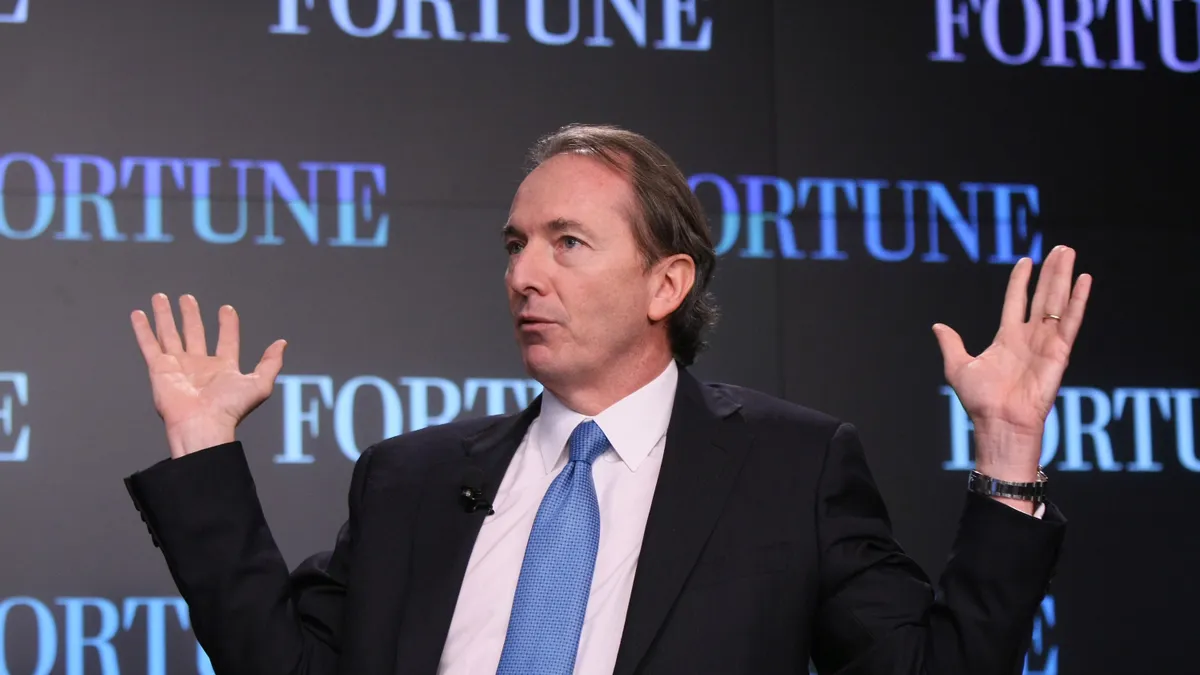Morgan Stanley’s annual meeting of shareholders last week may not have generated the press of investor days from JPMorgan Chase or Citi — or Goldman Sachs’ strategic update.
Nonetheless, the gathering offered four takeaways related to the bank’s future C-suite make-up, as well as commentary concerning the likelihood of a pending recession.
1. How long does James Gorman expect to remain CEO?
A year has passed since Morgan Stanley appointed two co-presidents, a co-head of strategy, a chief operating officer and new CFO, setting up a race to succeed Gorman at the bank’s top rung. At the time, Gorman said he intended to remain CEO for at least three more years. A shareholder Thursday pressed Gorman, 63, for an update, asking whether he would retire soon.
“‘Soon’ is the operative word, and the answer to that is no,” Gorman said, according to the Financial Times. “But retire we all must do eventually, or die in our seats, which I have no intention of doing.”
2. The shake-up has had a ripple effect.
Last year’s moves put Morgan Stanley in a position to thrive “for many decades after I’m gone,” Gorman said, installing “both a generation of leadership immediately behind me and the generation behind them.” The one-year time frame is crucial here, too. Gorman said he holds discussions with the bank’s board of directors at least once a year to ensure a “healthy succession transition” is on track.
3. Gorman put the likelihood of a recession within the next 18 months at less than 50%.
“If we have a recession, given the underlying growth in the U.S. economy, it is likely it will be relatively shallow and relatively swift,” the CEO said, adding, however, that he had previously put that projection at 30%.
The rate of inflation growth, geopolitical turmoil in Europe, and the Federal Reserve’s raising of interest rates will influence that possibility, but robust consumer and corporate balance sheets should offset the severity of a downturn, Gorman said.
4. Gorman defended the bank's ESG policies.
When a shareholder noted that a report pinpointed Morgan Stanley as the world's largest funder of liquefied natural gas projects, Gorman said the bank is “behaving very responsibly in helping this world and the world’s economies transition to cleaner sources of energy without enforcing abrupt changes that would be so destructive and damaging in other areas."
An abrupt shift away from oil, gas, coal “could have devastating consequences,” Gorman said, noting the bank was the first of its kind to commit to zero financed emissions.
“But it’s not by next year,” Gorman said. “It was by 2050.”














